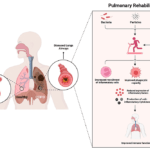
Are you curious about the best practices for lung function tests? It’s important to ensure that these tests are conducted correctly in order to obtain accurate results. In this article, we will explore the recommended methods and techniques for performing lung function tests. By following these best practices, healthcare professionals can ensure that patients receive the most reliable and informative results, leading to improved diagnosis and treatment. So, let’s dive in and discover the key guidelines for conducting lung function tests!

Preparation
When preparing for a lung function test, there are a few important things to keep in mind. First and foremost, it’s crucial to avoid smoking before the test. Smoking can adversely affect lung function and provide inaccurate test results. Additionally, it’s best to avoid caffeine and alcohol before the test, as they may impact breathing patterns. Lastly, it’s recommended not to eat a heavy meal before the test, as it may make you feel uncomfortable and affect your lung capacity.
Equipment
To conduct a lung function test, there are several pieces of equipment that are necessary. A calibrated spirometry machine is essential for accurately measuring lung function. This machine measures the amount and speed of air you can inhale and exhale. In some cases, a nebulizer may also be needed to deliver medication to the lungs. Finally, a peak flow meter is used to measure the maximum speed at which you can exhale.
Testing Environment
Creating the right testing environment is crucial for obtaining accurate lung function test results. The room where the test is conducted should be clean and well-ventilated. This ensures that there are no external factors that could affect your breathing patterns. Additionally, comfortable seating should be provided to ensure that you can relax during the test, as tension or discomfort can impact your breathing.
Patient Instructions
Properly instructing the patient before the lung function test is essential. It’s important to explain the test procedure in detail, ensuring that the patient knows what to expect. This helps to ease any anxiety or apprehensions they may have. Additionally, demonstrating correct breathing techniques is crucial. Teaching the patient how to take deep breaths and exhale forcefully helps to obtain accurate results. Lastly, encouraging the patient to relax and cooperate during the test promotes a better testing experience.

Spirometry Test
The spirometry test is a common procedure for lung function testing. To conduct this test, it is important to ensure that the patient is in an upright position. This allows for better airflow and accurate measurements. Once in position, the patient is instructed to take a deep breath and then exhale forcefully into the spirometer. This process is repeated multiple times to obtain reliable and consistent results.
Lung Volume Test
In certain cases, a lung volume test may be required to assess lung capacity. This test measures the amount of air your lungs can hold and how effectively you can use that air. To conduct this test, the patient needs to sit in a sealed box or wear a mask connected to a machine. The patient is then instructed to breathe normally and take a deep breath, holding it for a specific duration. During this time, the machine monitors and records the lung volume and capacity measurements.

Bronchial Challenge Test
A bronchial challenge test is conducted to assess airway hyperresponsiveness. This test involves administering a medication that causes temporary narrowing of the airways. Before and after the administration of the medication, the patient performs spirometry to measure lung function. The results are compared to evaluate the response to the medication and identify any abnormalities or potential lung disorders.
Interpretation of Results
Once the lung function test is complete, it’s important to interpret the results accurately. The obtained values are compared to normal predicted values to determine the functionality of the lungs. Any significant deviations from the normal values are carefully analyzed and evaluated. These results can help identify abnormalities or lung disorders such as asthma, chronic obstructive pulmonary disease (COPD), or restrictive lung diseases. However, it is essential to consult a medical professional for further analysis and proper diagnosis.
Cleaning and Maintenance
To ensure accurate and reliable lung function test results, it is crucial to regularly calibrate and maintain the spirometry machine. Regular calibration helps to maintain the accuracy of the measurements. Additionally, it is important to clean the equipment after each use to prevent contamination. Following the manufacturer’s guidelines on maintenance ensures the longevity and optimal performance of the equipment.
Ensuring Patient Safety
Patient safety should always be a priority during lung function tests. Clear instructions should be provided to the patient to ensure they understand the testing process. This helps to alleviate any potential anxiety or confusion. Monitoring the patient closely during the test allows for immediate identification of discomfort or adverse reactions. Adhering to infection control protocols, such as proper hand hygiene and equipment sterilization, helps prevent the spread of infections and ensures a safe testing environment for both the patient and the healthcare provider.
In conclusion, conducting a lung function test requires thorough preparation, the use of appropriate equipment, and adherence to best practices. By following these guidelines, healthcare providers can obtain accurate and reliable results, leading to proper diagnosis and effective management of lung disorders. Remember, a lung function test is a valuable tool in assessing respiratory health and should always be conducted with care and precision.









